|
Prelude: Carol Smith
ANNOUNCEMENTS: CALL TO WORSHIP: What a friend we have in Jesus! ”A friend loves at all times” the Proverb teaches us. How wonderful it is to consider that our truest friend, Jesus loves us at all times. The Lord loves us and has made us to be true friends for one another. So we should love one another at all times. Let us worship today our greatest friend. The Lord Jesus who, out of this great love, laid down His life for ours. He alone is worthy to be worshiped, and we, His people will give Him the praise and worship due Him. INVOCATION:
* Hymn “What a Friend We Have in Jesus” # 465
* PRAYER OF CONFESSION: (Unison) Heavenly Father, You have shown such great love to us. You sympathize with us in our weakness, You bear our burdens with us, and You laid down Your life when we were perishing and didn’t love You in return. You’ve been a greater friend to us than we could ever deserve. And yet, we have not been loving friends to our neighbors. We withdraw from others, choose not to care, and ignore those neighbors even in some of their greatest moments of need. Forgive us for not responding to Your love for us and for not extending that love to others. Have mercy on us for these sins and the many that we haven’t mentioned. For we trust in our loving friend Jesus as the only means of our forgiveness. Amen .*Time of silent prayer *Assurance of Pardon *Response – Gloria Patri #581 *Passing of the peace Children’s Chat Prayer for Illumination Scripture reading: John 15: 9-17 Ruby Hathaway Sermon Text: Proverbs 13: 20, 17: 17, 29:5 *Hymn “Spirit, Spirit of Gentleness” # 291 *Apostles Creed Presentation of our tithes and offering Offertory *Doxology *Prayer of dedication Concerns and Celebrations Prayers of the People The Lord’s Prayer *Hymn “Abide With Me” # 836 *Benediction Postlude: Carol Smith
Birthdays: Lois Miller, Michael Neal, Bob Moore
Anniversaries: Dave & Ina Henderson Remember our food collection, and Jesus said, “You give them something to eat”. Please let Betty Fisher know of anyone within the community that may be in need at this time. Cruizin’ T – Town happening today, 3:00pm to 6:00pm. Location is Blaine Twp. Pavilion, Buffalo Creek Road. Across from Taylorstown Ball field. VBS is coming up in a couple weeks. See Lois Miller or Mary Hathaway for details. The date is July 8th thru 12th from 6 pm to 8 pm. VBS program will be part of regular service at 11:15 am. Our 250th Anniversary plans are coming together. If interested in any of our committees or if you have photos or anything that pertains to the anniversary, Please bring it to church so we can document. Please everyone be careful, but enjoy the long holiday celebrating the 4th of July. It is observed on Thursday this year but also you get Friday off.
Continuing Prayer List
Chuck Dicks, Ricci Amos, Sandy Stone, Frank Huffman, Tom Westfall, Sarah Wilson, Carl Weber, Chuck Harton, Suzy Smith, Fred Wilkinson, Donna West, Marley Smith, Haley Diedier Bedillion, Helen Provenzano, Carol Pierce, Jim King, Mary Stoey, Johnny Yurko, Ron Poznic, Tim Knabensue, Betty Fisher, Norma Jean Kelso, The McFeely’s, Chuck Kapaika, Doug Ward, Nellie Baker, Kayla Horner, Tommy Ann Sanders ( 5 yr.old) Ed Stavovy (hip replacement)
0 Comments
Gathering Around the Word
Prelude: Pam Stewart Announcements: CALL TO WORSHIP: Our God has lavished on us such great love. When we were content with being children of the world, our God adopted us and made us His own. We do not know the fullness of the glory that awaits those in Christ. But we are satisfied and anticipating that when we see our Savior’s face, we will be like Him! God finds us in our lowly state but does not leave us there. He purifies us, changes us, and redirects our lives to Him. Praise God for His saving work and sanctifying work in us. Let us gather today and worship Him. INVOCATION
*Hymn: “O Christ, The Great Foundation” # 361
*PRAYER OF CONFESSION: Father, even though we are people of the world, You call us to live in the reality of a new kingdom ushered in by Your Son. We are born, prone to the influence of the world around us but You tell us that we must be born again by Your Spirit. Every day we see and hear the Spirit leading us and transforming us and yet, we are still often resistant. Like a rebellious child, we resist the work of our Father. Forgive us Lord, for the ways we hold onto our old lives before Christ. Forgive us for ignoring and complaining about the methods you use to make us holy. From the mercy we receive, create in us a deeper sense of obedience and set our eyes on the promise of being made fully anew in the presence of Your Son. Amen. *Time of Silent Prayer: *Assurance of Pardon *Response – Gloria Patri #581 Passing of the peace The peace of the Lord Jesus Christ be with you. And also with you. Children’s Chat Prayer of Illumination Scripture: John 8: 39-47 Don Herschell SERMON TEXT: 1 John 3: 1-3 The word of the Lord Thanks be to God! *Hymn: “Take My Life” #697 *Apostles Creed (next to prayer list) Presentation of tithes and offering Offertory *Doxology *Prayer of dedication Concerns and Celebrations Prayers of the people The Lord’s Prayer *Hymn: “Love Divine, All Loves Excelling” #366 * Benediction Postlude
BIRTHDAYS:
Ava Clifford ANNIVERSARIES: None SYMPATHIES: To the Family of Dana Wilson Remember our food collection, and Jesus said, “ You give them something to eat”. Please let Betty Fisher know of anyone within the community that may be in need at this time. Today is our covered dish dinner after the service in the social hall. Please come join for good food and fellowship. Session will meet Monday, April 8th at 7 p.m. Missionary meeting is Tuesday the 9th of April at 9:30 a.m. Please join us for fellowship. Women on Wednesday (WOW) will be meeting on April 10 at 9:30 a.m. There will be an outdoor workday on Saturday, April 13 at 8:30 am, weather permitting. As a reminder, any joys or concerns, please let Diana Donaldson know.
Continuing Prayer List
Chuck Dicks, Ricci Amos, Frank Huffman, Tom Westfall, Sandy Stone, Sarah Wilson, Carl Weber, Chuck Harton, Suzy Smith, Fred Wilkinson, Haley Diedier Bedillion, Donna West, Marley Smith, Helen Provenzano, Marlene McFeely, Carol Pierce, Johnny Yurko, Jim King, Betty Fisher, Mary Stoey, Ron Westfall, Beckett, Grandson of Scott Shetter, Ron Poznick, Stella Crothers, Lori Patterson, Norma Jean Kelso, Ron Dobscha
Good morning!
We're so glad you decided to join us today!
When we meet in person, we take time to share our joys and concerns. Take some time to consider the last week. If you have any prayer requests, you can add them as comments on this post. When you are ready, use the prayer below (source) to get started.
God Almighty, shine the light of Jesus into my life and help me make my way through this world of darkness without stumbling. Guide me away from any false light, and help me to find and follow Jesus' light. Use me to share that light with others so they can find their way home to you. In Jesus' name. Amen.
Today's lesson is on John 8:1-11, 56-59.
Lesson Context
The first part of today's lesson occurred while Jesus was in Jerusalem for the Festival of Tabernacles. This festival celebrated the olive and fruit harvests. It was also a time to remember deliverance from slavery in Egypt. As part of the festival, many people would live in tents outside the city to reenact the 40 years the Israelites had lived in tents while wandering in the wilderness. The second part of today's lesson occurs while Jesus responded to questions from a crowd of both laypeople and Pharisees.
A Woman's Cause to Rejoice
Jesus went to the Mount of Olives, probably as a way to be in his Father's presence. The next day, he went to the temple very early in the morning. The people gathering around him implies that they were primed to hear Jesus' teaching. Our book points out that there is no information about how the woman was found in adultery, but not her partner. It also states that there many have been some double standards about the judgment of women and the judgment of men in this situation. The Pharisees call Jesus "Teacher." This may have been done in a sarcastic manner, since they largely did not consider Jesus to have any authority to teach. It also may have put listeners on alert -- would Jesus answer as a learned teacher ought to , or would he reveal himself as a fraud? Jesus responded with what the Old Testament law stated. Both men and women were subject to being stoned. But then Jesus asked the Pharisees what they said about the situation. As they questioned Jesus further, he began to write on the ground. We are never told what he writes. Eventually, Jesus tells them that any of them without sin should cast the first stone. As much as the Pharisees tried to follow every letter of the law, they had all still sinned. At first the older teachers walked away, and then the younger, until none of them was left. They realized that they were all guilty of breaking one law or another. Now, there are no witnesses to condemn the woman. Jesus sends her to leave her life of sin. No further information is given regarding the woman's repentance.
Abraham's Cause to Rejoice
Before this passage, Jesus asserted that the crowd's actions showed them to be children of the devil. Calling Abraham their father implies that, if they were really his children, they would react as Abraham did from God's promise that his own family would bless the whole world. The crowd had a bad reaction to what Jesus had to say. Then, Jesus says, "before Abraham was born, I am!" We might recognize the "I am" as God's formula for self-identification in the Old Testament. In the gospel of John, we notice Jesus making frequent statements about himself that involve God's sacred name, I Am. When using this name directly for himself, Jesus is stressing his complete union with the Father. The crowd then tried to stone Jesus. Leviticus 24:16 states that anyone who blasphemes the name of the Lord must be put to death by stoning. The crowd understood what Jesus was saying. They were unable to stone Jesus because his time had not yet come.
Conclusion
Jesus was completely within his rights to condemn the adulterous woman, but he chose to offer mercy with his call to repentance. Jesus could have refrained from revealing himself as I am, but he chose instead to make himself known. We certainly benefit from Jesus' self-revelation and his merciful call to turn to him. Considering who Christ is and who he calls you to be, what repentance is necessary in your life? What "stonings" will you divert because of your love for Jesus? What rejoicing will you spread? Prayer Lord, we all have sinned and fallen short of your ways. Lay our hearts bare so that we might repent and sin no more. In Jesus' name we pray. Amen.
Questions for Discussion
Benediction
This week's benediction is from the New International Version.
Next week's lesson will be on Romans 2:12-23, 28-29.
Good morning!
We're so glad you decided to join us today!
When we meet together on Sunday mornings, we take time to share any joys or concerns we have. If you have a prayer request, please add it to the comments on this post. When you are ready, use the prayer below (source) to get started.
Heavenly Father, I praise and thank You for the Word of truth and for opening Scripture to my understanding. Thank You that Jesus came to earth and was prepared to suffer the sneering taunts and shocking accusations from His own family members and His own nation, to die on the Cross so that by grace through faith I might believe on His name and be saved. Thank You that despite being rejected and crucified, Jesus is coming back to set up His eternal kingdom on earth. Give me a greater understanding of Your plans and purposes for mankind, and may I live and work for Your greater praise and glory. This I ask in Jesus' name, AMEN.
This week's lesson is on John 7:14-24.
What does it mean to glorify God?
To glorify God is to honor Him with praise or worship. God is glorious, great and magnificent—He is grand in His nature and deeds. “Full of splendor and majesty is his work” (Psalm 111:3). Glorifying God means to acknowledge His greatness and splendor and praise Him for it. Revelation 14:7 tells us to direct our praise, adoration, thanksgiving, and worship to Him who alone is worthy. A great example of this is King David installing Asaph as Chief Minister. David’s instructions are:
In Asaph’s time, the offerings were in accordance with the Law of Moses; today, we are “to offer our bodies as a living sacrifice, holy and pleasing to God. According to Romans 12:1, this is true and proper worship”. In 1 Corinthians 10:31 Paul teaches: By virtue of who God is, we have an obligation to glorify God at all times. We are to extol His attributes, praise His works, trust His name, and obey His Word. He is holy, faithful, merciful, gracious, loving, majestic, sovereign, powerful, and omniscient. His works are wonderful, wise, marvelous, and fearfully complex. His Word is “perfect . . . trustworthy . . . right . . . radiant . . . pure . . . firm . . . precious” (Psalm 19:7–10). His salvation is astonishing, timely, and near. No matter how loudly or widely we proclaim the glory of God, He is worthy of more.
Prayer
Lord, teach us to glorify you in all that we do. Diminish our desires to make a name or a fortune for ourselves and increase our desire to bring glory to your Name. May we rely on the Holy Spirit to guide our thoughts, words, and actions. Thank you for the example we have in Christ. It is in his name we pray. Amen Thought to Remember Choose: your glory or his?
Benediction
Today's benediction is from the New King James Version.
Next week's lesson will be on John 8:1-11, 56-59.
Good morning!
We are so happy you chose to join us today!
When we meet together in person, we take time to share our joys and concerns. Consider your last week, and any prayer requests you might have. If you would like, you can share prayer requests as a comment on this post. When you are ready, use the prayer below to get started.
Dear Lord, thank you for your forgiveness. Thank you for not abandoning us to our mistakes, but for reaching out instead to bring us home. Help cleanse me of my sin and help me accept your mercy without shame. Thank you for the love you have poured out for me and all of your children. Help me live out of that love today. In Jesus' Name, Amen.
Today's lesson is on John 21:15-19.
This lesson picks up immediately where the previous lesson left off when Jesus cooks breakfast for some of the disciples who were fishing. We note that the focus narrows from the disciples in general to Peter specifically. But keep in mind that as Jesus and Simon Peter speak, they are still in the presence of the others, including John.
The New Testament testifies in various ways to Peter's unique and ongoing role in Jesus' ministry and in the earliest life of the church. Along with Paul, Peter stands out among the apostles in terms of his fame and influence. Peter was one of the three apostles considered by Paul to be “pillars”of the church. Peter emerged early on as a leader, bold in word and deed. He was among the first to recognize that when Jesus told his followers to “go and make disciples of all nations”, he really did mean to go to Gentiles without requiring them to take up Jewish practices before accepting him. In Acts 10 it tells of the vision that Peter had about the unclean food that God had told him to eat. While Peter was wondering about the meaning of this vision, the men sent by Cornelius the Centaurian who had seen an angel who told him to send for Peter to come to Cornelius house. While Peter was there the Holy Spirit came upon all that was there to hear his message just the same as the Holy Spirit had came upon them on Pentecost. Peter's influence resounded throughout the church. The impact of the events of today's text are therefore incalculable . Jesus asked Peter “Do you love me more that these?” Peter had overtly denied Jesus while Jesus was on trial. One explanation for Jesus question is simple redemption. This understanding was widespread in ancient Christian interpretation. Jesus was giving Peter the opportunity to repent of his betrayal and reaffirm his love for and devotion to Jesus. Jesus question as a call for repentance and redemption also refutes the idea that Jesus required affirmation from Peter, as though Jesus did not know Peter loved him or that Jesus was unsure of Peter's loyalty. Dovetailing with the above two explanations is one more concerned with Peter's prominent role in the first century church. Even though all of Jesus' disciples abandoned him with the exception of John, Peter's denial stands out as particularly grievous. Peter had boldly proclaimed that he would not betrayed Jesus even if others did, making his denials stand out . How, then, could Peter become arguably the most influential of the Twelve? How could he, who did not just run but verbally and empathically denied Jesus, become a faithful leader? John's inclusion of the series of questions and answers between Jesus and Peter more than justifies the position that Peter would hold. Though it is possible that Jesus was asking whether Peter loved him more than Peter loved the other disciples or his fishing profession it probably means that Jesus was asking if Peter loved him more than the other disciples did. More than a comparison between the states of their hearts-clearly a task Peter was not qualified to answer- the question was about the depth of Peter's own love. Did Peter's experience deepen his love for Christ or shatter it? If Peter loved Christ more than the others did, would Peter be prepared to do as Jesus would command? We might ask ourselves the same question following sinful failures. Though the word repentance is not used here, Peter's response clearly illustrates it. His response was an important step in repairing his relationship with Jesus. Note that Jesus approached Peter; similarly, Jesus approached us before we even knew him. Romans 5:8. Peter may have felt himself on unsteady footing with Jesus. Jesus question allowed Peter to affirm for himself and his companions the depth of his love and loyalty, despite his prior stumble. Jesus' question to us – whether he will be Lord of our lives, whether we love him-is also an opportunity to repent of whatever sins have prevented us from having the relationship we need with him. Jesus said, “Feed my lambs.” Jesus had identified himself as the good shepherd. In that discourse Jesus contrasted himself with Israel's current spiritual shepherds, who acted more like thieves than caregivers. Jesus' self-disclosure as Israel's shepherd was a claim of rightful leadership in ancient terms and even a fulfillment of God's promises. For example, in Ezekiel 34 God rebuked Israels shepherds; the nation's political religious leadership. As with corrupt leadership the world over, past and present, these authorities were more concerned with their own welfare and even luxury that with the lives of the people they were tasked with serving. God promised to remove those shepherds and take up the job himself. He would seek and find the lost sheep; he would feed them and heal them. Ezekiel 34: 1-16. In Jesus, God has fulfilled his promise. Jesus is the loving shepherd who feeds and protect his flock. He demonstrated this by healing the sick and feeding the multitudes. Jesus taught God's love for the lost sheep and indicated his role in seeking the lost. With Jesus' time on earth rapidly coming to a close, the task of shepherding his flock was still his. But Jesus would ensure that his disciples were empowered to care for the fledgling church- and his work continues today. Jesus has promised he will appear again, but we don't know when this happen. In the meantime, do we wall ourselves off from society and proverbially sit at the window waiting? No. We too have task to fulfill. We are not all called to be apostles or preachers or teachers. But we are all called to good works in Christ and whatever other work we do-as parents and grandparents, as employees or bosses, as citizens in our communities- we do as working for the Lord. Until Jesus returns, we too can make the most time and feed Jesus' sheep. Jesus proceeds to tell Peter about Peter's suffering and death. In light of what lay ahead for Peter, faithfulness to Jesus required a love so great that it could overcome the instinct for self-preservation. Peter loved Jesus he would show this through his own ministry and death. Stretch out your hands is and allusion to carrying one's cross to one's execution. Someone else will dress you and lead you where you do not want to go finishes the contrast. Peter's life would not be his own. In this way, his life parallel that of Jesus.
Conclusion
Peter stands out as a model disciple for a numerous of reasons. First, Peter was not unique in his need for redemption. All of us stand before Jesus needing redemption, being incapable of accomplishing it for ourselves. Just as Jesus did for Peter, so also Jesus does for us. He made the first move toward our redemption long ago on the cross and continues to invites us to accept his sacrifice as the atonement for our own sins. God's grace is magnified by the fact that Jesus himself, the offended party, initiated the process. This is consistent with the biblical story in which God, who is always the offended party, initiates reconciliation with sinful humanity. Second, Peter redemption resulted in commission. Like Peter, we confess our love for our Lord and Savior. Doing so must result in our commitment to living lives that parallel Jesus' own; being more concerned about the will of our Father than with our own agendas. Though how we each live out Jesus' commission varies based on our circumstances, each of us is called to the life of faith. Third, our commission comes with knowledge of what our faithfulness can cost us. Like Peter, we accept the call with the clear understanding that because Christ suffered and we are his, we too expect the life of faith to entail suffering just as Peter's did. Sometimes this means physical suffering or even death at the hands of the world. Sometimes it means enduring shame and torment for righteousness' sake. Fourth, like Peter's pain, our own suffering comes with a promise. With our suffering it comes with a promise. When we suffer for Christ and for godly purposes, we bring glory to the Lord- no matter how humiliating the world might believe our plight to be. None of us today have had an encounter with Christ like Peter did. But when you tell the story of how God has redeemed you, what role do believers like Peter play? In whose redemption story do you (or should you) play a role? Prayer Heavenly Father, thank you for making our redemption story possible. Help us to embrace living lives that parallel Jesus' life and bring glory to you, even in suffering. In Jesus' name we pray. Amen. If you would like to read a good book about Peter, Lois would recommend “Simon Peter, Flawed but Faithful Disciple” by Adam Hamilton. It discuss how most Christians identify with Peter because he did have his flaws like we all do. It had some many insights that you might not of thought of.
Questions
Benediction
Today's benediction is from the New Revised Standard Version.
Next week's lesson will be on Acts 1:1-11.
Good morning!
We're so glad you decided to join us today!
When we meet in person, we share our joys and concerns with each other. If you have prayer requests to share, you can add them to the comments on this post. When you are ready, use this prayer (edited from a prayer found on the Sacred Space website) to get started.
Heavenly Father, we know that we have much, and we also know that everything we have of value is because of your love and your graciousness toward us.
Jesus, you meet us at the water’s edge of our ordinary lives. You accept us lovingly, you encourage us, you invite us to abundance. Nourished by the food of your word, warmed by the fire of your unfailing love, may we, in turn, nourish, heal and love those we meet today. For we ask it in Christ’s name. Amen.
Today's lesson is on John 21:1-14.
Introduction
The Gospel of John begins with a prologue that speaks not about Jesus’s lineage (as in Matthew and Luke) but about what God was doing through Christ from the perspective of eternity. It’s a wonderful passage chock full of meaning and grandeur about how Christ was the true light that came into the world to shine in the darkness. This same Gospel ends with what could be considered an epilogue, which is the 21st chapter. Chapter 20 ends with a statement of the purpose of the gospel, which would seem to be a fitting ending to the gospel. However, chapter 21, which includes our text for this morning, describes an intimate post resurrection story of a particular disciple’s redemption and forgiveness after Christ’s resurrection. Some scholars believe this chapter was added later by another author, but that is not necessarily the case. The lesson points out that no manuscripts exist that do not include this passage and that such epilogues were common in other ancient writings. In any case, these verses serve to show Christ’s continued power and presence after the resurrection and to talk about how Peter was forgiven and restored after his denial of Jesus during his trial.
The disciples fail (verses 1-3)
After Jesus appeared to Mary, to the disciples and then to Thomas (in chapter 20, not in our lesson), the disciples are back in Galilee, seemingly trying to figure out everything that had happened and what they should do now. Those present included Simon Peter, Nathanael (a disciples mentioned only in John), the sons of Zebedee (James and John mentioned in Matthew’s gospel but not named in John) and two other unnamed disciples. The disciples are staying near the Sea of Galilee. Suddenly Peter tells the others, “I’m going out to fish.” Some scholars take this as a decision that he is simply going to return to his former profession and put his discipleship behind him. That is not necessarily the case, though. It may simply be that, while they waited for Jesus in Galilee, they needed to feed themselves. Jesus had already appeared to them after his resurrection. With that in mind, although Peter might have been impatient and distraught over his own failure, it is hard to believe he was abandoning his discipleship so quickly. The other disciples went out with Peter to fish during the night. According to the lesson, fishermen typically worked at night on the Sea of Galilee. Fish would come up to feed at night and dive deeper as the sun warmed the surface. Therefore, nighttime was a more productive fishing time. Yet even though they fished all night, they caught nothing.
Jesus provides (verses 4-6)
As they were finishing for the night, the disciples saw a man standing on the shore. However, at this point they did not recognize it as Jesus. The gospel writers must be saying something about the disciples’ inability to recognize the resurrected Christ. Mary did not recognize him at the tomb. The disciples on the road to Emmaus did not recognize him, even though they walked with him for miles. There could be explanations for each of these events. Mary was not expecting to see Jesus standing before her, just as the disciples could not imagine it was Jesus walking with them. And just because it was early in the morning, that doesn’t mean the sun was completely risen, not to mention the fact that they may have been a distance from the shore. However, taken together, it seems strange that no one immediately recognized the man they had followed for years, after he was resurrected. Then Jesus calls out to them, asking them if they have caught any fish. Of course, they answer, “No.” So he instructs them to throw their net on the right side of the boat instead. He promises they will find some there. When they obeyed and did, in fact, catch a large number of fish, they realize this could be no one but Jesus.
‘It is the Lord’ (verses 7-14)
The disciple whom Jesus loved — which most scholars believe is John, the author of the book of John — shouts out, “It is the Lord!” As soon as John says the words, Peter puts on his outers garment, which he had removed in order to fish, and he jumps into the water and swims for shore. It is clear that Peter could not wait for the boat to reach shore. He had to get to Jesus in the fastest way possible. The other disciples stayed in the boat, weighed down with the miraculous catch, and slowly headed for shore. Peter, we assume, reached the shore first. On the shore they found Jesus beside a fire of burning coals, with fish on fire, and some bread. The burning coals harken back to the coals that were burning as Peter stood outside the judgment hall and warmed himself and denied he knew Jesus. Undoubtedly, Simon Peter still felt guilty about denying the Lord, and the smell of the coals would stir up those memories within him. In the last part of chapter 21 (not included in our lesson), Jesus has an intimate conversation with Peter and says to him, “Feed my sheep” and “Follow me,” setting him back on the path of discipleship. At this point, Jesus instructs them to bring some fish from their catch as well. So Simon Peter climbs back into the boat and drags the net ashore. We’re told that the net was full of large fish and that there were 153 in all. It seems unusual that the fishermen would have bothered to count each fish, and many have tried to find meaning in the number 153, but the only thing we know for certain is that there was a large number of big fish and that, despite that, the net did not break. This surely must mean that Jesus continues to provide for his disciples and that, when Jesus is involved, nothing will be lost. Next Jesus invites them to have breakfast with him. And the disciples know without asking that it is Jesus. Just as the travelers on the Emmaus Road recognized Jesus in the breaking of bread, so the disciples become certain of Christ’s presence as they share a meal with him. This meal signifies Jesus’s acceptance of those who had abandoned him. It signifies his presence, even when we cannot see him, and it signifies his sharing his life with those who follow him. Even though Jesus would no longer be with them in the flesh, the resurrected Christ sends the Spirit to empower his disciples for their mission. John records three times when Jesus appeared to the disciples after his resurrection. Those appearances gave his disciples the assurance that Jesus was still with them, that the grave did not hold him. And that gave them strength for the work that lay before them.
Conclusion
Jesus is not waiting for Sunday to spend time with his disciples today. While you’re at work — whatever that looks like for you — Jesus still invites you to experience his abundance and spend time with him. How can you ensure that you don’t miss these opportunities? Prayer Our Father, we marvel at the abundance of life we find in Jesus. And we thank you for sending him to us! We give thanks in Jesus’ name. Amen. Questions for discussion:
Benediction
Today's benediction is from the New International Version.
Next week's lesson continues from this week. It is on John 21:15-19.
Happy Easter!
He is Risen!
Our guest speaker today is Rev. Renny Domske.
Easter---What a joy to celebrate!!
Prelude Announcements: Choir Call to Worship: He is Risen! He is risen indeed! Christ is risen! Christ is risen indeed! This call has rung out for 2000 years. Yet it is still as true as that first day! Christ has risen from the dead! Hallelujah! Christ is no longer in the grave! Hallelujah! The punishment that brought us peace was upon Him. And by His wounds--by His stripes-we are healed! I serve a Risen Savior, He’s in the world today. I know that He is living, whatever men may say. Christ the Lord is Risen today! Up from the grave He arose! Hallelujah! Christ Arose. He is Risen indeed!
Invocation
Hymn of Praise “He Lives” see insert Unison Prayer of Joy Lord, help us to live right. Before you act, LISTEN. Before you react, THINK. Before you spend, EARN. Before you criticize, WAIT. Before you pray, FORGIVE. Before you quit, TRY. Before you fail, GIVE YOUR LIFE TO GOD. Assurance of Pardon Response – Gloria Patri Passing the peace The peace of the Lord Jesus Christ be with you And also with you. Children Chat Gospel Joy John 20:1-9 Choir Anthem Gospel Joy John 20: 10-18 Prayer for Illumination Exploring God’s Word Dr. Renny Domske “My Mamma Martha Now Playing Mary” Hymn of Dedication “Christ Arose see insert Apostles Creed Presentation of Tithes and Offerings Offertory—Doxology Prayer of dedication Joys and Concerns Prayers of the People and The Lord’s Prayer INVITATION TO THE LORD’S TABLE Communion Hymn of Celebration - Every morning is Easter Morning See insert. Choir Benediction
Good morning!
We're so glad you decided to join us today!
When we meet in person, we share our joys and concerns with each other. If you have prayer requests to share, you can add them to the comments on this post. When you are ready, use this prayer to get started.
Lord, we come to you each day to have communion with you. We come here each week to learn more about you and to worship you with others who also love you. We do it because we have deep longing to know you better, a longing that is satisfied only with the living water of which Jesus spoke. Yet we also know that there are others in our community who share this longing but who do not know how to satisfy it. They try to quench their thirst with other things, but nothing except your presence is enough. Help us to find ways to reach out to these people, without excluding or judging anyone, so that they, too, may find satisfaction for their souls. We pray this in Christ’s name. Amen.
This week's lesson is on John 4:7-15, 28-30, 39-41.
Introduction
People and society put up walls between human beings that have no place in God’s kingdom. We sort people into categories — good and bad, successful and unsuccessful, deserving and undeserving of love and acceptance, people to be welcomed and people to be avoided. Within those categories there are multiple variations. A poor black single mother, for example, would not be in the same category as a wealthy black athlete, recording artist or Supreme Court justice. But categories persist in people’s minds, and people are often sorted out and valued according to our prejudices. It was no different in Jesus’ day. Some of the reasons people were seen as more or less valuable than others were different, but the walls still existed. However, time after time in the gospels, Jesus broke through those barriers and approached each person as an individual trying — and sometimes failing — to live his or her best life. Jesus did not ignore or minimize the weight of people’s sinful choices. Instead, he revealed them and pointed each person to God’s love. Instead of diminishing and discarding people, Jesus offered them a way to peace and forgiveness and a way forward with God. A case in point is our lesson for this morning. It is the story of a Samaritan woman who meets Jesus at a community well in the hottest part of the day. Before our lesson begins, John tells us that Jesus is headed back to Galilee from Jerusalem, where he has just had another encounter. That encounter is with a Pharisee named Nicodemus, a person on a much higher rung on the social ladder than the woman we meet today. After that meeting, the scripture says Jesus had to pass through Samaria. In a spiritual sense that may be true. But on a physical level it is not exactly accurate. Most Jews traveling from Judea to Galilee avoided Samaria altogether by taking the extra time to travel one of two circuitous routes, thus avoiding potential contact with the despised Samaritans. That route set up an encounter that crossed multiple societal barriers. Jesus’s interaction with the Samaritan woman shows us how God does not judge people based on people’s sex, race or nationality or anything else. With God there is only one category — those whom God loves.
The Stranger (verse 7-15)
According to John, it’s the sixth hour when Jesus comes to Jacob’s well. That is an important detail because the sixth hour is noon. It’s a desert community, and no one would normally be at the well at that time of day. Fetching water was women’s work, and that heavy task would be reserved for the cooler parts of the day. Women used this as an opportunity to talk to one another and have some needed social interaction during their daily chores. Instead, Jesus finds a lone woman at the well. She is likely by herself because that is the time when she will not have to encounter any other women. Soon we will learn why she is an outcast and that she would rather endure the heat and isolation than the derision of the other women. In verses 16 to 27 (not in our lesson), we learn that she has had five husbands and is now living with a man who is not her husband. Jesus knows this without being told, and the woman therefore believes he is a prophet. Jesus is also alone because his disciples have gone into the town to buy food. Shockingly, despite all of the obstacles and class differences, Jesus speaks to the woman and asks her for a drink of water. In the ancient Roman world, women were seen as less valuable than men, and therefore men did not normally address women in public. But Jesus is a Jewish man, an important religious figure, and he is speaking not only to a woman but to a Samaritan woman. Samaritans were descendants of the people who belonged to the northern tribes of Israel, but they were also descended from a mixture of other non-Jewish races. In 722 BC, the Assyrian army had invaded the northern kingdom of Israel and taken most of the people back as captives. Those remaining had intermixed with foreigners who had settled in the region. Across the years, they maintained a religion that included many Jewish facets interwoven with other beliefs. They revered only the first five books of the Bible, for example, and they believed God should be worshipped on Mount Gerizim in Samaria instead of in Jerusalem. For this reason, the Jews of the tribes of the southern kingdom of Judea considered the Samaritans tainted in their religion and as a people. Jesus uses his request for water and the Samaritan woman’s response as an opportunity to speak to her about deeper matters. She asks how he, a Jew, could be asking her, a Samaritan, for water. Instead of addressing why he is speaking to her at all, Jesus speaks metaphorically about water and how he has a different kind of “water” that refreshes the soul and that never runs out. He says he can offer that water to her. Like many in John’s gospel, the woman does not understand what Jesus is talking about. She is thinking only on a physical level, but Jesus is talking about a restored relationship with God through the Holy Spirit that meets her deeper spiritual needs. Still, the woman wants this water, if only to relieve her day-to-day physical problems.
The Promised One (verses 28-30, 39-41)
The woman has just said that the Messiah is to come, and Jesus has responded by saying “I am he.” It’s one of the many “I am” statements in this gospel, linking Jesus with the God whom Moses encountered in the burning bush. In that encounter in Exodus 3, God told Moses to tell people who ask who has sent him that “I Am That I Am” has sent him. In this case, Jesus is linking himself with that same God and saying that he is the Messiah to whom the woman refers. With that, the woman leaves in such a rush that she doesn’t bother to take her water jar. Dropping her shame for the sake of urgency, she goes into the town and tells the people to come and see this man who knows all about her life. She raises the question, “Could this be the Messiah?” Even though the woman may not have been considered the best witness, the people respond to her testimony about Jesus and followed her back to the well to decide for themselves. John tells us that many believed after meeting Jesus. The story ends with the Samaritans asking Jesus to stay with them. And in a significant breach of social norms, Jesus stays with them for two days, and during that time many more people come to believe. So the story begins with Jesus coming as an outsider and speaking to a person who is an outsider within her own community. It ends with Jesus staying in a community of people that Jews would not even communicate with. It ends with acceptance and with a restoration of relationships with God and with each other. From this story it is clear that Jesus accepts us as we are, that Jesus overcomes our sinfulness and forgives our sin, and that Jesus breaks down walls and builds community. Wouldn’t it be wonderful if everyone who professes Christ would accept others the same way?
Conclusion
Jesus’ earthly ministry did not include limits based on typical human barriers. His encounter with the Samaritan woman is a prime example. In Jesus’ presence, many of the boundaries that we have put up or that others have put up around us disappear (Romans 3:22; 10:12; Galatians 3:28-29; Ephesians 2:11-22; contrast 5:11; 1 Timothy 4:7; 2 Timothy 3:1-5; Titus 3:10). As we find our identity in Jesus, we can become the conduit of mercy and grace to those we encounter. The living water Jesus gives us is available now and will continue to well up in us until we reach the age to come. The gift we find in Jesus is not a stagnant thing; it moves us from old to new, death to life, lost to found, enslaved to free; it means we are saved!
Prayer
Father, forgive us for the times when we have allowed barriers to prevent us from inviting others to see you. Help us to see those around us the way that you see them; help us to demonstrate your love and holiness to them. This we pray in Jesus’ name. Amen.
Questions for discussion:
Benediction
Today's benediction is from the New King James Version.
Next week's lesson will be on Mark 5:1-13, 18-20.
Our guest speaker this week is Rev. Renny Domske.
Gathering Around the Word
Prelude Bob Senay Introit Choir ANNOUNCEMENTS CALL TO WORSHIP ( Psalm 25 ) L: To You, O Lord, I lift up my soul, In You I trust, O my God. Do not let me be put to shame. P: No one whose hope is in You will ever be put to shame. Show me Your ways, O Lord, teach me Your paths. L: Guide me in Your truth and teach me, for You are God my Savior, and my hope is in You. P: Remember, O Lord, Your great mercy and love. Remember me, for You are good, O Lord. L: All the ways of the Lord are loving and faithful for those who keep the demands of His covenant. P: My eyes are ever on the Lord, For only He will release my feet from the snare. INVOCATION Renny Domske
* HYMN “Come Thou Fount of Every Blessing” # 475
* PRAYER OF CONFESSION (UNISON) Loving Lord Jesus, who came to seek and to save the lost, we Confess that we have lost our way. Forgive our wayward and willful disobedience. Lead us back to you. ‘Forgive us for every thought, word, or deed that has brought hurt to others. Heal the pain we have caused. We have dishonored Your Name. Grace us with Your Holy Spirit and lead us once again in the way that leads to life. * Time of silent prayer *Assurance of Pardon *Response – Gloria Patri (Hymnal page 581) *Passing the Peace L: The peace of the Lord Jesus Christ be with you. P: And also, with you. CHILDREN’S CHAT The Word of God Prayer for Illumination Scripture reading: John 1: 6 - 14 Lois Miller Mark 1: 1 - 14 L: The Word of the Lord P: Thanks be to God! Sermon “Saturday Night Bath Night “ Responding to the Word *HYMN “There’s a Sweet Spirit in This Place” #408 *Apostles Creed (copy next to prayer list) Presentation of our tithes and offering Offertory - Doxology ( Page 606) *Prayer of dedication Concerns and Celebrations Prayers of the People The Lord’s Prayer INVITATION TO THE LORD’S TABLE: Communion *HYMN “ Come Christians, Join to Sing” #267 *Choir *Benediction Postlude Bob Senay *Please stand if able |
AuthorWe are a small, rural Presbyterian church in southwestern Pennsylvania. Archives
July 2024
Categories
All
|

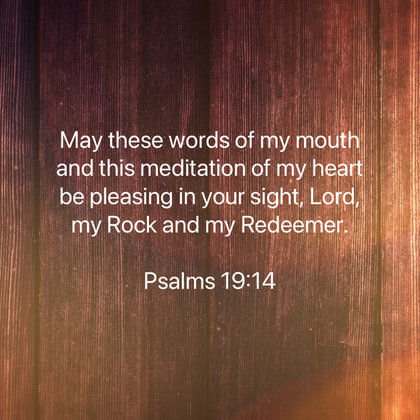

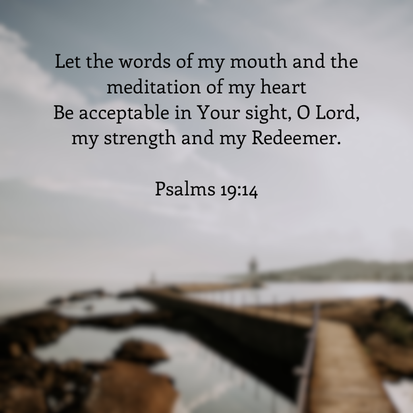
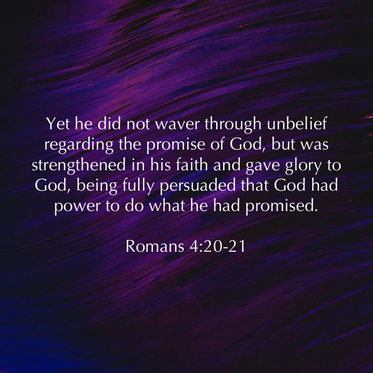
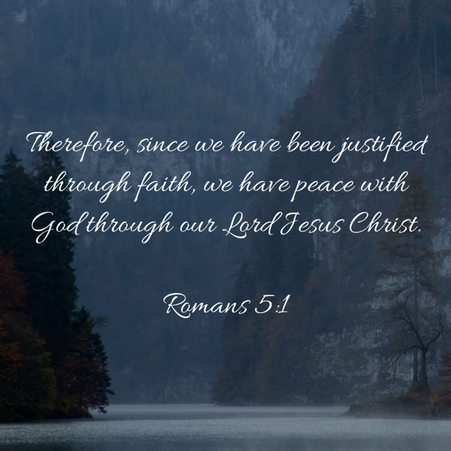
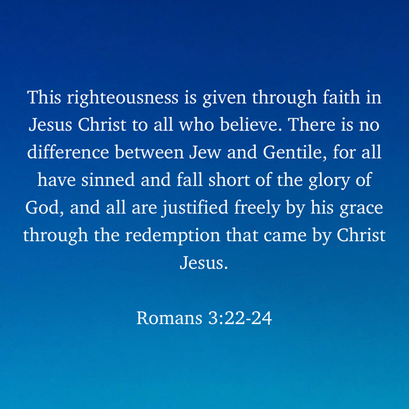


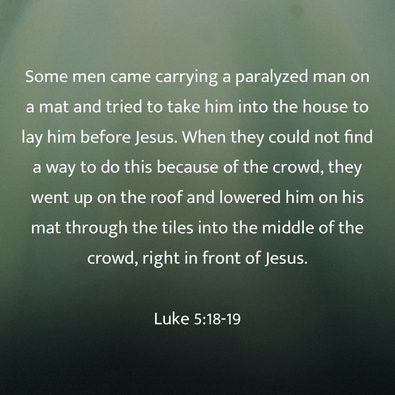

 RSS Feed
RSS Feed